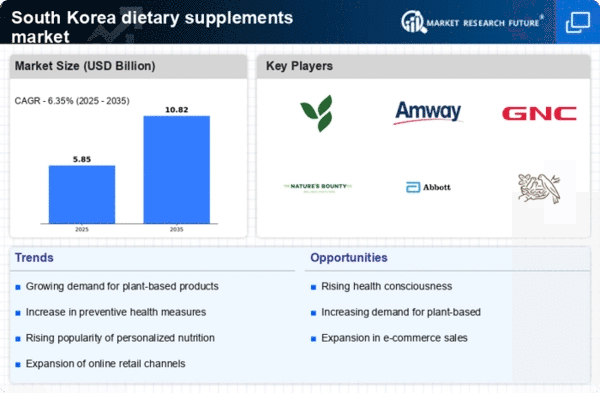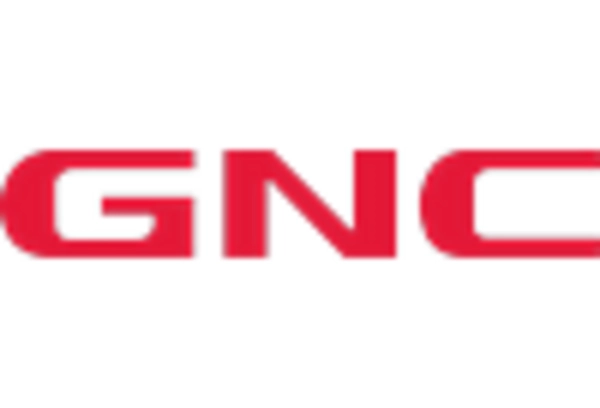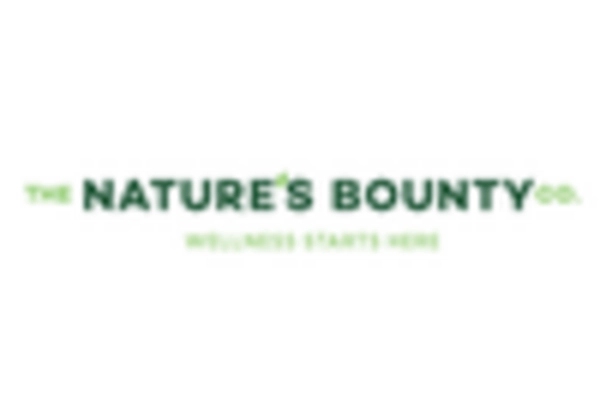Aging Population Influence
The demographic shift towards an aging population in South Korea significantly impacts the dietary supplements market. As the proportion of elderly individuals increases, there is a corresponding rise in the demand for supplements that address age-related health concerns. Products targeting joint health, cognitive function, and immune support are particularly sought after. Data suggests that the elderly population is projected to reach 20% by 2025, creating a substantial market opportunity. This demographic trend indicates a growing need for dietary supplements tailored to the unique health requirements of older adults, thereby driving innovation and product development within the industry.
Health Consciousness Surge
The dietary supplements market in South Korea experiences a notable surge in health consciousness among consumers. This trend is driven by an increasing awareness of the importance of nutrition and wellness. As individuals seek to enhance their overall health, the demand for dietary supplements rises. Recent data indicates that approximately 60% of South Koreans actively seek out supplements to support their health goals. This growing focus on preventive health measures is likely to propel the dietary supplements market forward, as consumers prioritize products that promote vitality and longevity. Furthermore, the rise in lifestyle-related diseases has prompted a shift towards proactive health management, further fueling the market's expansion.
Rising E-commerce Adoption
The dietary supplements market in South Korea is witnessing a significant rise in e-commerce adoption. With the increasing penetration of the internet and mobile devices, consumers are increasingly turning to online platforms for their supplement purchases. Data indicates that online sales of dietary supplements have grown by over 30% in the past year alone. This shift towards digital shopping provides consumers with greater access to a diverse range of products, often at competitive prices. Furthermore, the convenience of online shopping aligns with the fast-paced lifestyle of many South Koreans, making it a preferred option. As e-commerce continues to expand, it is likely to play a pivotal role in shaping the future of the dietary supplements market.
Focus on Clean Label Products
The dietary supplements market in South Korea is experiencing a growing emphasis on clean label products. Consumers are increasingly scrutinizing ingredient lists and seeking transparency regarding the sourcing and manufacturing of supplements. This trend reflects a broader movement towards natural and organic products, as individuals become more health-conscious and environmentally aware. Data suggests that nearly 70% of consumers prefer supplements with minimal and recognizable ingredients. As a result, manufacturers are responding by reformulating products to meet these clean label demands. This focus on transparency and quality is likely to drive consumer loyalty and influence purchasing decisions within the dietary supplements market.
Technological Advancements in Production
Technological advancements in production processes are reshaping the dietary supplements market in South Korea. Innovations in manufacturing techniques, such as encapsulation and microencapsulation, enhance the bioavailability and efficacy of supplements. These advancements allow for the creation of more effective formulations that cater to specific health needs. Additionally, the integration of technology in quality control ensures that products meet stringent safety standards. As a result, consumers are more likely to trust and invest in dietary supplements that utilize cutting-edge technology. This trend not only boosts consumer confidence but also encourages market growth as companies strive to differentiate their offerings through superior product quality.
















